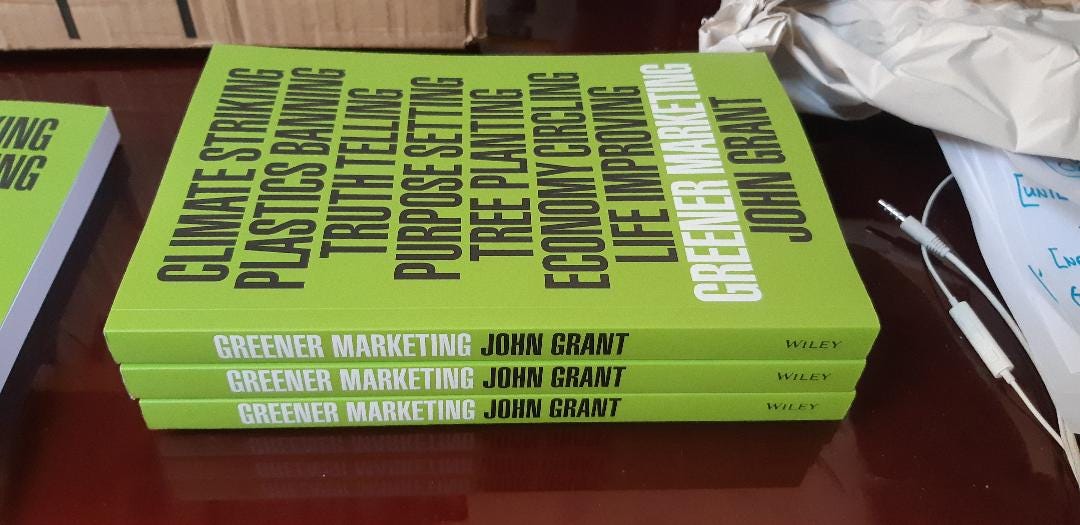I’m quite active in URGING already. I’ve been doing sustainability-related work and writing for several decades – my new book on (radically) Greener Marketing has just been published. I do a lot of speaking, panelling, teaching, workshopping and conversing, ‘consulting and creating’ for organisations on a mission.
In my consulting projects I often act as a catalyst, accelerating reactions. But it’s only me. One element in someone else’s process. And (if you look into the chemistry of catalysis) I can be quite unmoved and unchanged by it myself. I learn a great deal, but it’s not my tribe.
I also ‘campaign’ quite a bit. Over the years I have made a human beehive on Twitter, helped run an election campaign for a climate suffragette, encouraged people to hold their own G20 meeting, got people to canvass their MP for climate, put Barbie and Ken in a wicked window display about plastic trash… All good fun but quite ephemeral.
My URGE is for this collective to work like a guild for radical change. That’s different than individually catalysing or making one-off creative activist campaigns. It is about creating a revitalisation movement. One that aims to change the whole of society starting with itself. It acts like a womb or matrix, a nurturing place where new possibilities emerge.
What collectives can do is:
- hammer out new shared ways of being, working, thinking and doing
- create a home, a physical or cultural space
- be a factory of the future, prototype, envision
- invite others into that space to help them transform themselves
- look after each other
- start a network model so other future cells of URGE can form
I have in mind historical examples like the cooperatives, medieval crafts guilds, the Bauhaus. But also modern examples like Linux, Wikipedia, Freecycle, Transition Towns, XR. Autonomous self-organising social productions. Or ASOSPs for short!
I like that this group comes from diverse ‘creative industries’. With a high mix of makers – film, architecture, product, publishing. It’s a rich mix and I always learn something new from our discussions. This massively increases our scope of potential projects – we could tackle anything from cities to the creative industries to cardboard cups.
Also there’s a chance that as a collective we can access more senior, more influential clients and projects than any individual could. As a group (if we establish a strong shared brand) we can potentially have bigger picture discussions and affect bigger systems of change.
Obviously, we are together because we share a recognition that URGENT radical change is needed. For climate. For biodiversity. For social justice. We’ve also been through lockdown. And now (to an extent few have fully realised yet) have years of economic struggle ahead.
There are, historically, certain times when societies reinvent themselves – as we had to do post-war. We may be in just such a window of opportunity now. Any contribution we make to that reinvention could make more difference than anything else any of us ever worked on.

John Grant’s latest book, Greener Marketing, is published by Wiley.

